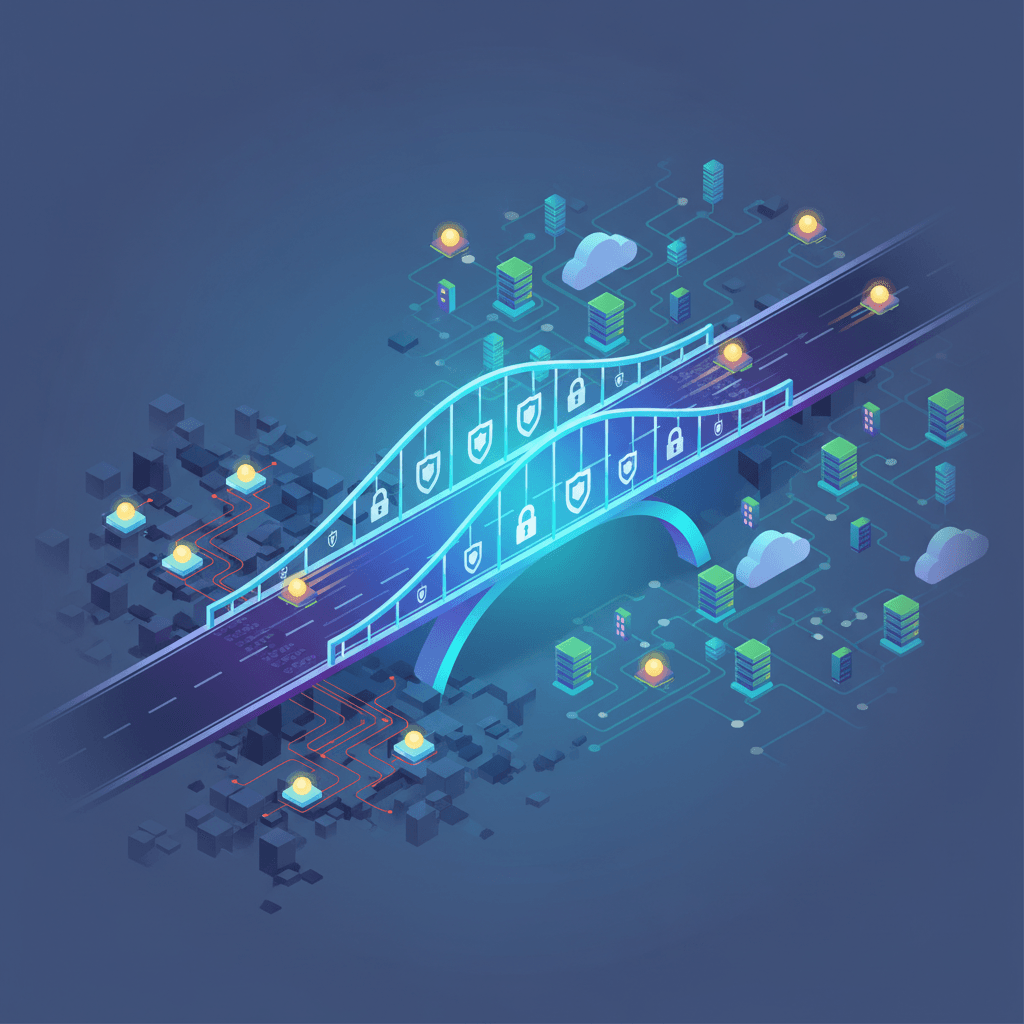MCP Update Fortifies AI Security, Propelling Agents to Enterprise Production
By standardizing AI-to-tool communication with robust security, this protocol unlocks generative AI's full enterprise potential.
November 27, 2025

A significant update to the Model Context Protocol (MCP) is poised to accelerate the transition of generative AI agents from experimental pilots to full-scale production environments by directly addressing the critical security and scalability challenges that have hindered their enterprise adoption.[1] The open-source project, initiated by the AI company Anthropic, has introduced a revised specification that fortifies infrastructure with more robust security measures, a crucial step for organizations looking to leverage autonomous AI systems with their sensitive data and complex operational workflows.[1][2] This move is seen as a pivotal development in standardizing how AI models interact with external tools and data sources, aiming to solve the persistent operational headaches that keep powerful AI agents locked in development sandboxes.[1][3]
The fundamental challenge MCP was designed to overcome is the complex and fragmented nature of integrating AI models with a multitude of external systems.[4][3][5] Before the protocol's introduction in late 2024, developers faced what was described as an "N×M" data integration problem, where custom, brittle connectors had to be built for every single tool and data source an AI agent needed to access.[4] This ad-hoc approach was not only inefficient and time-consuming but also fraught with security risks. MCP introduces a universal, open standard that acts as a standardized "USB-C port for AI," allowing any AI model to connect with any data source or tool through a common interface.[4][6][7][5] This architecture consists of MCP clients (the AI applications), MCP servers (which expose data and tools), and a defined transport layer for communication, simplifying integrations and enabling AI agents to access everything from databases and APIs to local files and code repositories in a seamless, structured way.[8][5]
The latest specification updates place a heavy emphasis on enterprise-grade security, a direct response to vulnerabilities and the growing need for trust as these systems become more autonomous.[2][9] A key enhancement in a recent update was the formal classification of MCP servers as OAuth 2.0 Resource Servers.[10][9] This seemingly semantic change has profound security implications, as it establishes a clear framework for authorization and allows servers to advertise their corresponding authorization server.[10] Furthermore, the update mandates that clients implement Resource Indicators (RFC 8707) when requesting access tokens.[10][9] This measure explicitly binds each token to a specific MCP server, effectively preventing "confused deputy" attacks where a token intended for one service could be maliciously used to access another.[9] By formalizing these roles and introducing clearer security best practices, the protocol significantly reduces the risk of unauthorized access and data breaches.[2][10][11]
Another critical security advancement is the introduction of capabilities like "URL Elicitation." This feature, developed in collaboration with industry partners, allows an MCP server to direct a user to a standard web browser-based authentication flow, such as OAuth.[12][13] This is vital for enterprise scenarios as it means the AI agent or client application never handles the user's raw credentials; instead, the authentication is handled directly between the user and the trusted service provider.[13] The AI application then receives only the specific, limited-permission tokens it needs to perform a task.[13] This robust permissions model, combined with standardized protocols for how agents discover and call tools, creates a more auditable and controllable environment.[11] This structured approach to security is essential for building trust and ensuring compliance, thereby paving the way for deploying agents that can interact with core business systems and sensitive data.[2]
By standardizing connections and hardening security, the MCP updates directly enable the scaling of AI infrastructure. The protocol’s universal nature eliminates the need for redundant, custom integration work, which frees up development resources and accelerates the deployment of new AI capabilities.[2][14][15] When AI agents can reliably and securely connect to diverse enterprise systems—from GitHub and Slack to Postgres databases and proprietary business tools—they can move beyond simple chat functions to perform complex, automated workflows.[4][3] This enhanced security and interoperability, backed by major industry players like Amazon Web Services, Microsoft, and Google Cloud, fosters a more stable and scalable ecosystem. It allows organizations to build compound AI systems, where different agents might leverage a variety of tools through MCP, knowing the interactions are governed by a secure and predictable framework. This addresses the core operational hurdles that have previously made scaling AI initiatives both risky and cost-prohibitive.[2]
In conclusion, the evolution of the Model Context Protocol marks a critical maturation point for the generative AI industry. The concerted focus on security and standardization in the latest specification provides the foundational trust and technical scaffolding necessary for enterprises to deploy AI agents at scale. By creating a universal, secure, and efficient standard for AI-to-tool communication, MCP is effectively laying the plumbing for the next wave of AI innovation.[16] These enhancements are not merely incremental; they represent a fundamental shift toward creating a robust and interoperable ecosystem where AI agents can be safely integrated into the core of enterprise operations, finally unlocking their transformative potential and moving them from the lab to the real world.
Sources
[2]
[6]
[7]
[8]
[10]
[11]
[12]
[13]
[14]
[15]
[16]